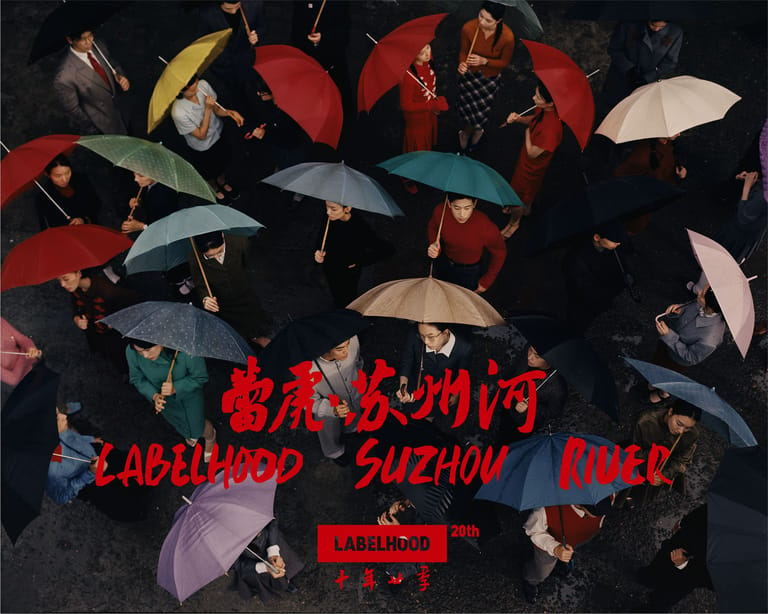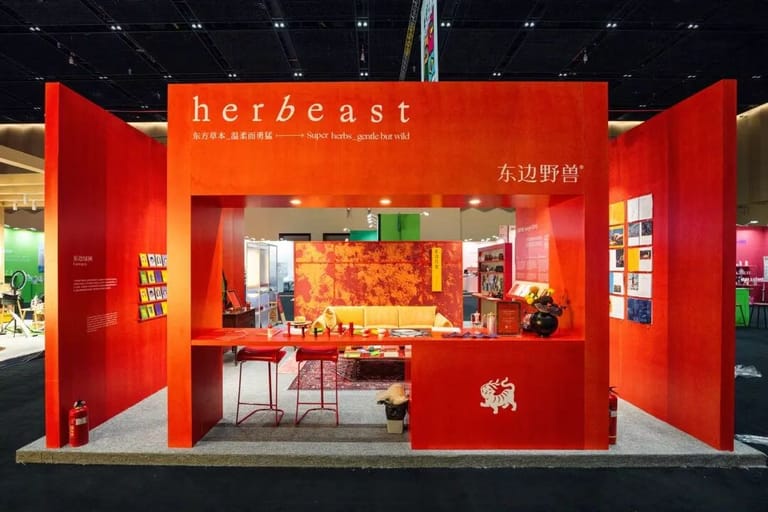Notes Shanghai Founder on Elevating Chinese Perfumery
By
Huiyan Chen

Published on
April 3, 2025

This article was originally published by BeautyMatter and is republished here as part of a content-sharing partnership with Jingzhi Chronicle.
The Visionary profiles the individuals redefining creativity and leadership in China’s evolving landscape—from fashion and art to technology and business. Through in-depth interviews and sharp analysis, this column unveils the minds driving innovation, exploring their inspirations, challenges, and the lasting impact of their work. These trailblazers aren’t just keeping pace with change; they’re leading it.
China’s fragrance market is booming as domestic brands rapidly emerge and gradually gain international recognition.
During Shanghai Fashion Week (SHFW), Notes Shanghai, renowned for its dedication to niche perfumery and global expansion ambitions, hosted its four-day Spring 2025 exhibition at the West Bund Dome Art Center under the theme “East Meets West.”
Notes Shanghai founder Wu Yue has long been attuned to industry trends and is committed to cultivating the growth of domestic fragrance brands. Beyond establishing the trade show for industry exchange, he launched initiatives such as the Golden Osmanthus Awards to heighten market awareness and foster closer connections among brands, distributors, and consumers, both in China and abroad.
In an interview with BeautyMatter, Wu shared insights into China’s fragrance market, examining the opportunities and challenges domestic brands face as they pursue international success.

Wu explained that his foray into the fragrance industry was a natural progression, given his academic background in chemistry at both the undergraduate and graduate levels. “It was not a deliberate choice but rather an organic evolution,” he said.
Wu’s experience in fragrance manufacturing exposed him to a wide range of domestic and international brands, revealing the stark information barriers between markets. “The pandemic only exacerbated this fragmentation. Many brands, distributors, supply chains, and consumers lacked direct communication. That’s when I envisioned a platform to facilitate seamless exchange, strengthen industry ties, and enhance information flow.” The absence of a dedicated fragrance trade show in China further underscored the need for Notes Shanghai.
In addition to Notes Shanghai, the Golden Osmanthus Awards serves to elevate consumer awareness and amplify the visibility of standout products. “It’s not just an awards ceremony—it’s an industry platform that extends influence and supports the long-term development of China’s fragrance market.”
In 2025, Notes Shanghai has entered a three-year strategic partnership with SHFW, as Wu emphasized the intrinsic connection between perfumery and fashion. “Fragrance is more than a cosmetic product; it’s an extension of personal style. Partnering with SHFW opens new opportunities for fashion buyers and commercial ventures within the fragrance industry, allowing brands to reach the market more effectively. As one of China’s most influential fashion events, SHFW recognized our vision, and our partnership came together naturally.”

The rise of domestic fragrance brands embracing an Eastern narrative is both logical and natural, Wu noted. “Many brand founders are Chinese or have grown up in China, deeply influenced by Eastern storytelling. Their target consumers share this cultural affinity. Scent is a powerful conduit of memory and emotion—integrating native elements such as tea and osmanthus into perfumes makes them more resonant with local audiences.”
Yet, despite the increasing presence of Chinese cultural elements in fragrance, Wu cautioned against the assumption that Eastern narratives dominate the market. “Because international brands historically led the industry, the rise of Chinese elements may seem like a dramatic shift. But in reality, sales data shows their market share remains relatively small. This gap highlights the need for more high-quality brands rooted in Chinese culture—not just in storytelling, but also in product and business execution. Such brands remain rare.”
Wu argued that Chinese fragrance brands should not blindly pursue international expansion. “Not every brand needs to enter multiple markets or pursue globalization as its ultimate objective. Some may achieve great success by focusing solely on China or a specific foreign market. Fragrance is deeply tied to culture and personal style—brand development is inherently diverse, with no fixed path to success.”
Nevertheless, Wu and his team continue to facilitate international opportunities through global trade fairs, media outreach, and industry networking. “Whether a brand succeeds internationally depends on its positioning and capabilities. Our role is to provide a platform that enhances global access for Chinese brands.”
China’s rich cultural heritage is a distinct advantage, Wu said, but brands must learn to translate and leverage it effectively. “Many still approach cultural expression superficially, leaving significant room for deeper exploration.”
Another advantage is China’s unique raw materials, historically overlooked in the Western-dominated fragrance industry. “As interest in Chinese elements and Eastern aesthetics grows, these materials are gaining recognition. For perfumers, novel raw materials inspire new scents and creative possibilities.”
China’s robust supply chain also provides a competitive edge. “Even international brands that manufacture abroad still source components and packaging from China. This gives Chinese fragrance brands a design and packaging advantage over some independent overseas labels.”
At the same time, China’s domestic market remains a formidable force. “China is not yet one of the world’s top three fragrance markets, but its massive population and growing acceptance of fragrance, particularly among younger consumers, signal enormous growth potential. The open-mindedness of Chinese consumers not only fuels local brand growth but also attracts international brands to enter China.”
Despite the tailwinds, China’s modern fragrance industry remains in its infancy. “Only in recent years have we seen the emergence of professional perfumers, entrepreneurs, and industry talent. While rapid growth creates opportunities, it also exposes gaps—whether in retail expertise, brand development, or perfumery, talent shortages remain an issue.”
Another hurdle is the lack of international experience among new brand founders. “Many have limited exposure to overseas markets, making it difficult to develop a truly global perspective. Addressing this gap is critical for the industry’s long-term success.”
But Wu remains optimistic. “As long as brands and industry players maintain passion and patience, breakthroughs will happen.”
At this Spring’s Notes Shanghai, the introduction of a dedicated perfumer’s section underscored a pivotal industry shift. “Perfumers are not just technical professionals—they are artists with distinct creative signatures. This individuality plays a crucial role in a brand’s market development, which is why many brands are now proactively bringing perfumers to the forefront.”

The role of Chinese perfumers is evolving, Wu observed, with young talent making inroads into top fragrance houses. “Many have studied fragrance in China before furthering their education in Europe, and in a few years, they will become key figures in the industry, gaining broader recognition.”
He noted that international fragrance companies have long prioritized diversity in talent. Fragrance ingredients are sourced globally and serve a global audience, forging an industry that is intrinsically international. To succeed in China, companies must rely on local talent who inherently understand Chinese consumers.
In the past, consumers could only purchase fragrances from foreign brands due to a lack of domestic expertise. “But that’s changing. When Chinese perfumes are placed alongside international ones, they often resonate more deeply with local consumers.”
As global firms increasingly invest in Chinese ingredients, Wu sees this shift as a reflection of China’s growing cultural influence. “Ingredients that were once overlooked in Western perfumery are now gaining recognition, becoming valuable sources of inspiration for perfumers worldwide.”












